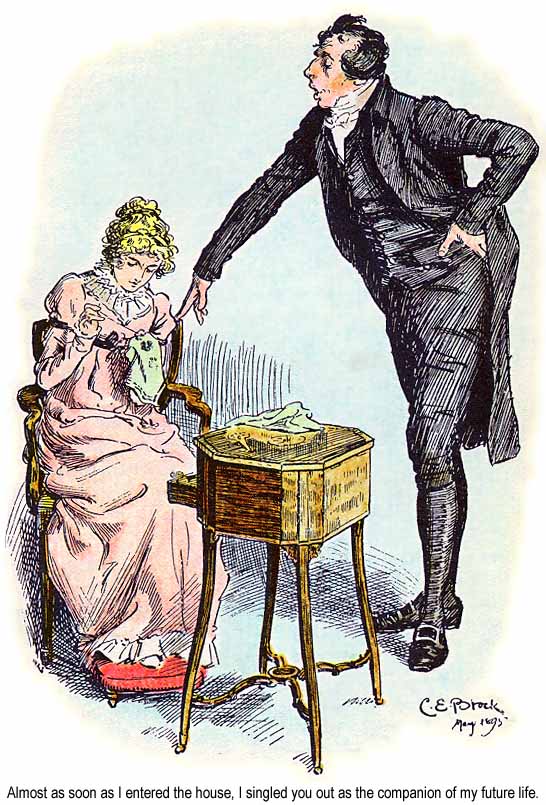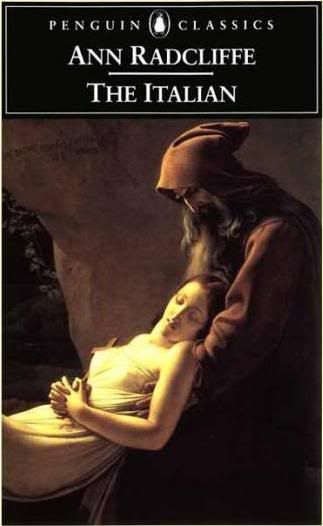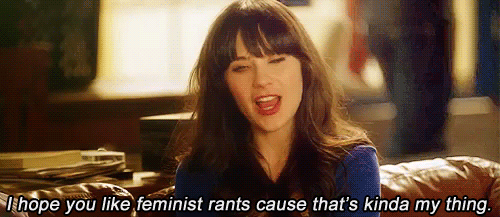 Today, despite all of the gains we have made, neither men nor women have real choice. Until women have supportive employers and colleagues as well as partners who share family responsibilities, they don't have real choice. And until men are fully respected for contributing inside the home, they don't have real choice either. Equal opportunity is not equal unless everyone receives the encouragement that makes seizing those opportunities possible. Only then can both men and women achieve their full potential.
Today, despite all of the gains we have made, neither men nor women have real choice. Until women have supportive employers and colleagues as well as partners who share family responsibilities, they don't have real choice. And until men are fully respected for contributing inside the home, they don't have real choice either. Equal opportunity is not equal unless everyone receives the encouragement that makes seizing those opportunities possible. Only then can both men and women achieve their full potential.
In a lot of ways, Lean In is somewhat of a sequel to The Feminine Mystique. Sandberg, the COO of Facebook, doesn't tackle as broad a scope as Friedan, preferring to focus on women's experiences and opportunities in corporate America, but she addresses and gives updates on many of the issues that Friedan explored in her classic. On one hand, we've come a long way in the last fifty years. I also appreciate that Sandberg recognizes that things are a lot worse in other countries and even for women in America who aren't the target audience of this book, which is clearly educated, middle to upper class women. On the other hand, Sandberg says that "knowing things could be worse should not stop us from trying to make them better" and that "it is time to face the fact that the revolution has stalled." She notes the disparities in the numbers of men and women leading countries and large companies, and exhorts us to push toward real equality, not just the promise of equality.
Sandberg's focus, unlike Friedan's, is less on society and more on women themselves. She argues that many times women hold themselves back, refusing to take advantage of opportunities or contribute. Sandberg exhorts women to "lean in," to sit at the main table and not take a chair at the side of the room, among other things. She also argues that it totally makes sense for women to sit back and let men push for promotions or get raises. One of the most interesting parts of the book is when Sandberg cites the Howard/Heidi study done at Harvard several years ago. In the study, subjects were given the same description of a businessperson's career, strengths, weaknesses, personality, etc, but the name on some of the descriptions was Heidi and on the others it was Howard. Despite the fact that the stories were identical in everything but the gender of the subject, the participants, both men and women, in the study found Howard more likeable than Heidi. Heidi was seen as pushy, uncaring, and basically a bitch, while Howard was seen as driven and hard working. (I was bothered by how reminiscent this was of the college student Friedan interviewed who said, "It's not too smart to be smart"). Sandberg gets into some amateur sociology and describes how women are expected to focus more on the community and the well being of others, while men are free to look out for themselves. Given these expectations, is it any wonder that women don't lean in?
Sandberg provides advice, both on an individual level and on an institutional level. On the individual level, the advice is basically be more like men. In some cases her perspective is constructive; it's appropriate to tell women to have more self confidence and not to give up opportunities just because maybe, some day down the road, they'll want to have a family. In other ways, I feel like she should be instructing men to be more like women, or at least advising both to stop doing some things. For example, she relays an anecdote about an attorney friend who was much more conservative in her billing. If she didn't feel like she was doing her best work, she'd discount the amount of time she'd spent, while men bill even when they just have a passing thought about a client while in the shower. Sandberg argues that the men are more valuable to their firms and that therefore they will be more likely for advancement and that women should follow their lead. As an attorney myself, I found her friend's practices much more ethical.
On the institutional level, her advice has made more progress, in part by pointing out inequalities and male privilege. As much as this book is addressed to women trying to make their way in corporate America, it's also addressed to the men leading it, and it's already having an impact. Cisco CEO John Chambers made headlines when he came out with a positive review. "While I have always considered myself sensitive to and effective on gender issues in the workplace, my eyes were opened in new ways and I feel a renewed sense of urgency to make the progress we haven’t made in the last decade,” wrote Chambers. “After reading Lean In and listening to Sheryl, I realize that, while I believe I am relatively enlightened, I have not consistently walked the talk...” The failed aphorism notwithstanding, Chambers touches on a very important theme explored in this book. A big step we need to take toward achieving true equality is for men and women both to recognize the barriers that women still have to overcome. Sandberg even cites a study that shows people are even more likely to unconsciously prefer men over women when they think they are unbiased. Hopefully Chambers's public reaction is a catalyst and a sign of things to come.
The male corporate leaders of America aren't the only men Lean In is for. Sanberg also devotes a lot of pages emphasizing the importance of having a supportive partner. Even though women still do a disproportionate amount of housework and childcare, I do think this is an area in which we're improving.
In the end, this actually is an area where consciousness raising can have a tangible, material effect, and I think Lean In does a good job of drawing attention to some important issues.
PS
I am not going to devote a whole post to The Host, I just felt like I should explain myself a little. I read an interview the other day in which Stephanie Meyer said that she was a feminist. With so many female celebrities eschewing that label, I figured I should investigate. I certainly wasn't going to read the Twilight books again, so I went with The Host instead (which, it turns out, was actually a lot better than the vampire ones. Not super great, but a lot better). My verdict is that while The Host doesn't have a lot of the traditional feminist themes you see female protagonist based media like Buffy, that doesn't make it anti-feminist, necessarily. Sure, Wanderer/Melanie are primarily motivated by the men in their life/lives, but at least the book has a female protagonist who is honorable and heroic, plus the movie will pass the Bechdel test (two or more women in the movie that talk to each other about something other than a man. It actually happens in a lot fewer movies than you'd think). So not really a feminist manifesto, but not as dubious as the Twilight books and not as terrible a read, either.
Sandberg's focus, unlike Friedan's, is less on society and more on women themselves. She argues that many times women hold themselves back, refusing to take advantage of opportunities or contribute. Sandberg exhorts women to "lean in," to sit at the main table and not take a chair at the side of the room, among other things. She also argues that it totally makes sense for women to sit back and let men push for promotions or get raises. One of the most interesting parts of the book is when Sandberg cites the Howard/Heidi study done at Harvard several years ago. In the study, subjects were given the same description of a businessperson's career, strengths, weaknesses, personality, etc, but the name on some of the descriptions was Heidi and on the others it was Howard. Despite the fact that the stories were identical in everything but the gender of the subject, the participants, both men and women, in the study found Howard more likeable than Heidi. Heidi was seen as pushy, uncaring, and basically a bitch, while Howard was seen as driven and hard working. (I was bothered by how reminiscent this was of the college student Friedan interviewed who said, "It's not too smart to be smart"). Sandberg gets into some amateur sociology and describes how women are expected to focus more on the community and the well being of others, while men are free to look out for themselves. Given these expectations, is it any wonder that women don't lean in?
Sandberg provides advice, both on an individual level and on an institutional level. On the individual level, the advice is basically be more like men. In some cases her perspective is constructive; it's appropriate to tell women to have more self confidence and not to give up opportunities just because maybe, some day down the road, they'll want to have a family. In other ways, I feel like she should be instructing men to be more like women, or at least advising both to stop doing some things. For example, she relays an anecdote about an attorney friend who was much more conservative in her billing. If she didn't feel like she was doing her best work, she'd discount the amount of time she'd spent, while men bill even when they just have a passing thought about a client while in the shower. Sandberg argues that the men are more valuable to their firms and that therefore they will be more likely for advancement and that women should follow their lead. As an attorney myself, I found her friend's practices much more ethical.
On the institutional level, her advice has made more progress, in part by pointing out inequalities and male privilege. As much as this book is addressed to women trying to make their way in corporate America, it's also addressed to the men leading it, and it's already having an impact. Cisco CEO John Chambers made headlines when he came out with a positive review. "While I have always considered myself sensitive to and effective on gender issues in the workplace, my eyes were opened in new ways and I feel a renewed sense of urgency to make the progress we haven’t made in the last decade,” wrote Chambers. “After reading Lean In and listening to Sheryl, I realize that, while I believe I am relatively enlightened, I have not consistently walked the talk...” The failed aphorism notwithstanding, Chambers touches on a very important theme explored in this book. A big step we need to take toward achieving true equality is for men and women both to recognize the barriers that women still have to overcome. Sandberg even cites a study that shows people are even more likely to unconsciously prefer men over women when they think they are unbiased. Hopefully Chambers's public reaction is a catalyst and a sign of things to come.
The male corporate leaders of America aren't the only men Lean In is for. Sanberg also devotes a lot of pages emphasizing the importance of having a supportive partner. Even though women still do a disproportionate amount of housework and childcare, I do think this is an area in which we're improving.
In the end, this actually is an area where consciousness raising can have a tangible, material effect, and I think Lean In does a good job of drawing attention to some important issues.
PS
I am not going to devote a whole post to The Host, I just felt like I should explain myself a little. I read an interview the other day in which Stephanie Meyer said that she was a feminist. With so many female celebrities eschewing that label, I figured I should investigate. I certainly wasn't going to read the Twilight books again, so I went with The Host instead (which, it turns out, was actually a lot better than the vampire ones. Not super great, but a lot better). My verdict is that while The Host doesn't have a lot of the traditional feminist themes you see female protagonist based media like Buffy, that doesn't make it anti-feminist, necessarily. Sure, Wanderer/Melanie are primarily motivated by the men in their life/lives, but at least the book has a female protagonist who is honorable and heroic, plus the movie will pass the Bechdel test (two or more women in the movie that talk to each other about something other than a man. It actually happens in a lot fewer movies than you'd think). So not really a feminist manifesto, but not as dubious as the Twilight books and not as terrible a read, either.











